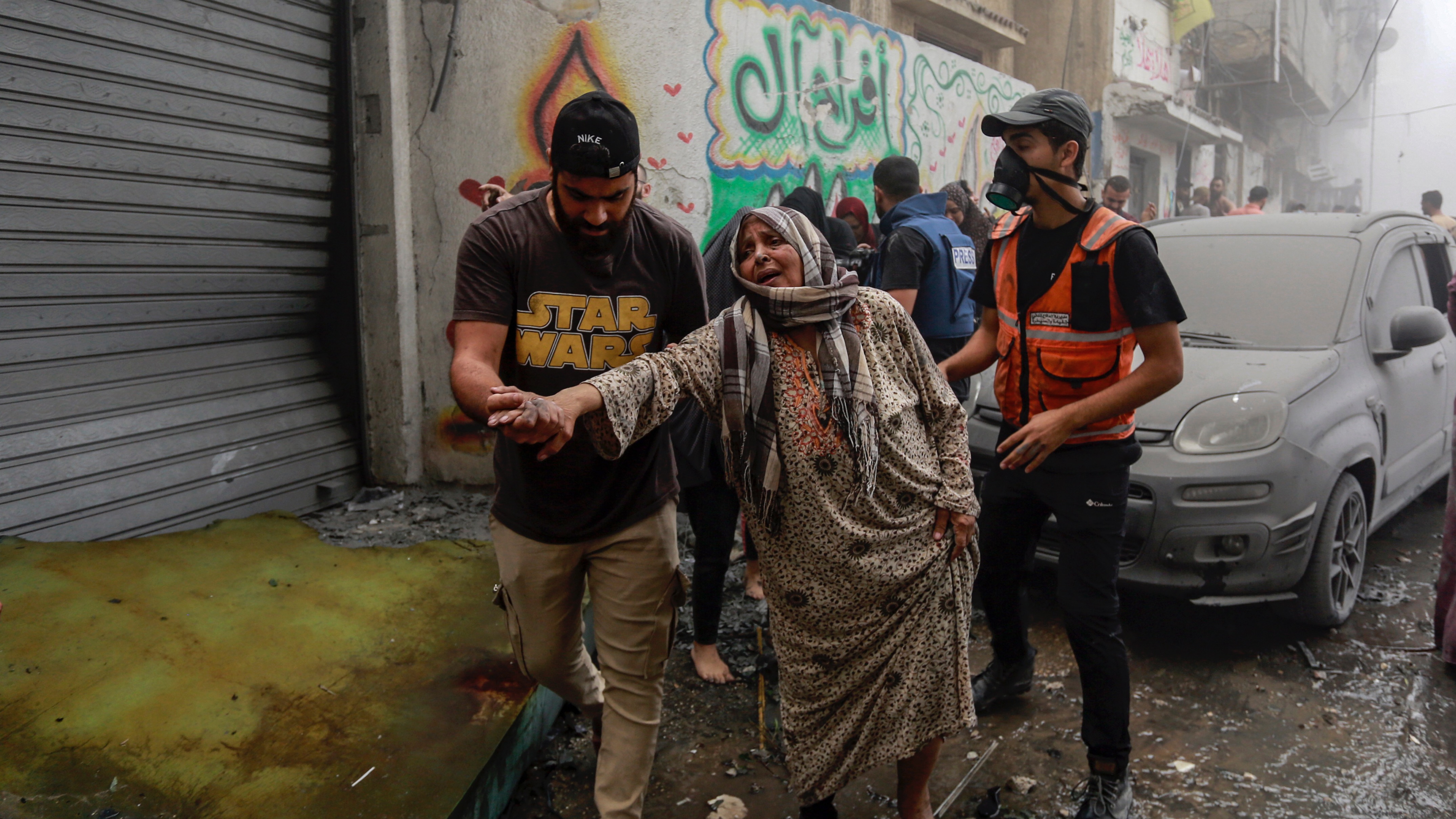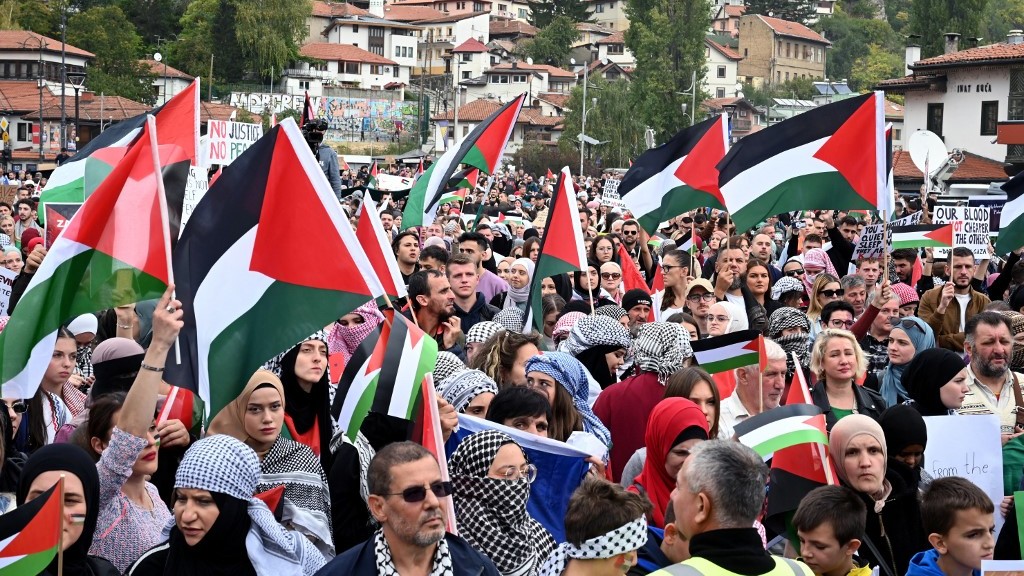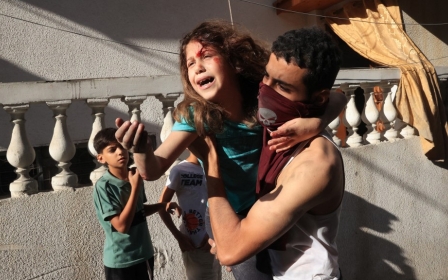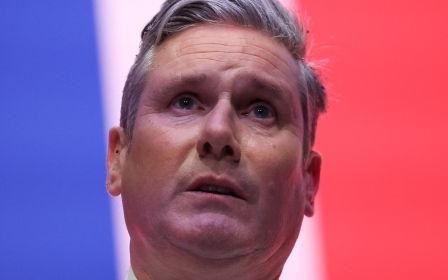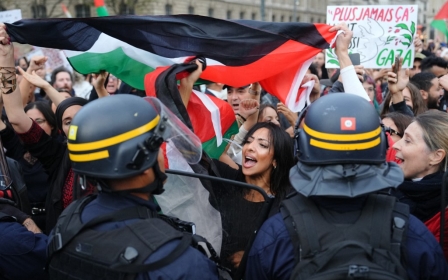Israel-Gaza war: The EU's rush to defend Israel 'undermines its moral authority'
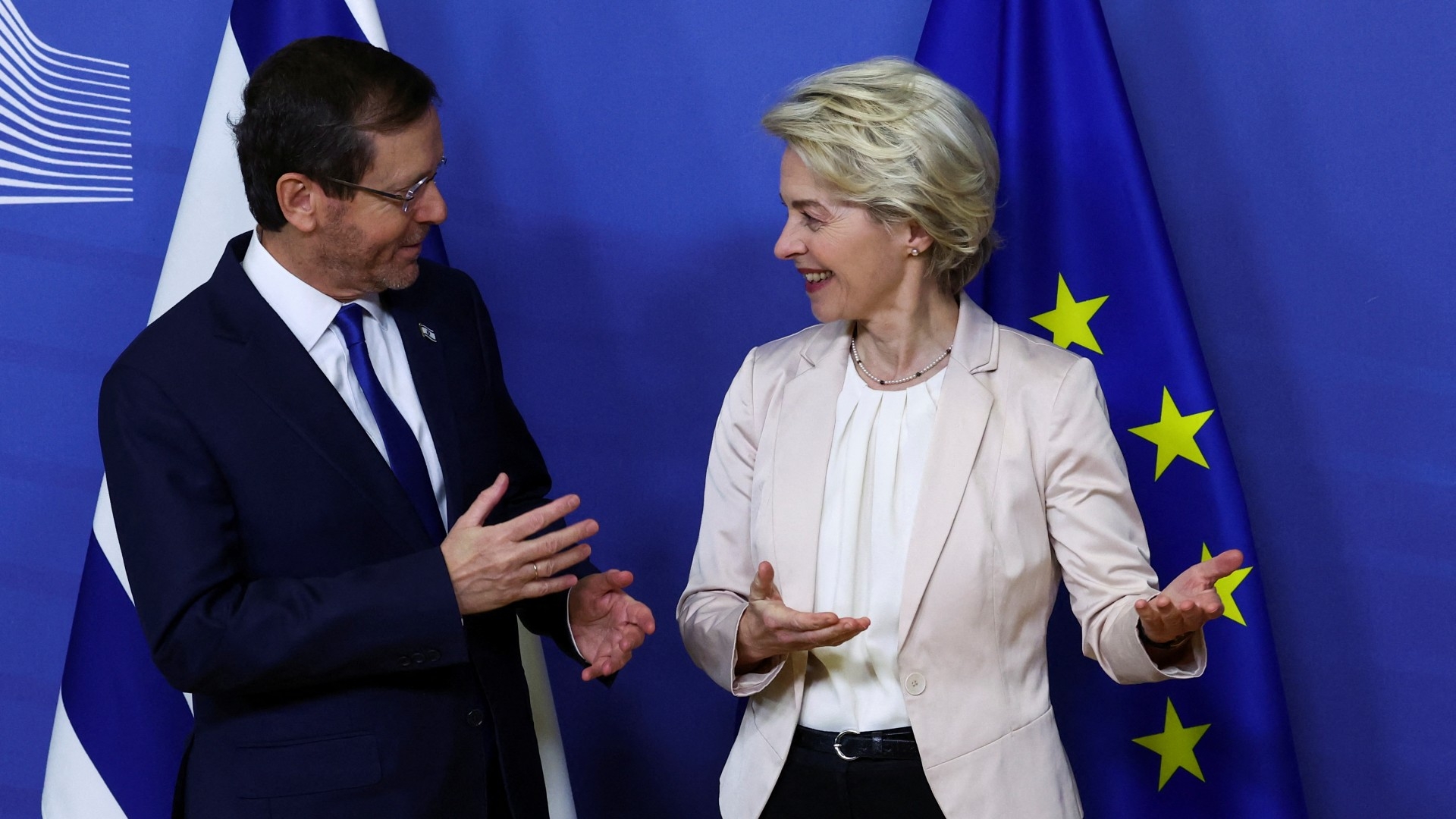
The European Union's support for Israel's war on Gaza has seen the emergence of splits, confusion and seemingly the making of policy on-the-go.
Following Hamas' surprise attack on 7 October on southern Israel from the Gaza Strip - which resulted in the deaths of around 1,400 Israelis - Oliver Varhelyi, the European commissioner for neighbourhood and enlargement, said "there can be no business as usual".
Taking other EU member states by surprise, Varhelyi added that the scale of the Hamas attack meant that it was a "turning point" and that $729m in humanitarian aid for Palestinians would be suspended until further notice.
Several member states, including Ireland, Spain and the Netherlands, publicly chided the decision citing that the need for humanitarian aid was even more necessary given that Israel had announced a new "complete siege" of Gaza, cutting off water, power and food to the Palestinian enclave, already under a 16-year siege.
Ireland even said: "Our understanding is that there is no legal basis for a unilateral decision of this kind by an individual commissioner and we do not expect a suspension of aid."
New MEE newsletter: Jerusalem Dispatch
Sign up to get the latest insights and analysis on Israel-Palestine, alongside Turkey Unpacked and other MEE newsletters
The European commissioner for crisis management, Janez Lenarcic, contradicted Varhelyi and announced that "EU humanitarian aid to Palestinians in need will continue as long as needed".
The public back-and-forth between EU politicians and member states seemed to lay bare a lack of coordination or a clear policy towards Israel's war conduct or the humanitarian plight of Palestinians.
As it stands the Israeli military has killed at least 5,087 Palestinians since the conflict started, including more than 2,000 children, according to the latest tally provided by the Palestinian health ministry. Around 70 percent of those killed are children, women and elderly people.
'Failed leadership'
When European Commission President Ursula von der Leyen, who has increasingly put herself forward as the face of the EU on the global stage, offered her full-throttled support for Israel, EU parliamentarians condemned her lack of mandate to speak on foreign policy matters.
"President von der Leyen's approach has been entirely one-sided and she has entirely failed to show leadership and lead a coherent response to the crisis," Grace O'Sullivan, an Irish Green Party member of the European parliament, told Middle East Eye.
"It was clear from the beginning that the president's cabinet of commissioners were not communicating on the issue and were instead making unilateral statements," she added, referring to Varhelyi.
Since then, O'Sullivan has called for Varhelyi's immediate resignation.
'Why don't we have the same standard we have towards Russia with Israel?'
- Margrete Auken, Danish politician
In a rare show of protest, some 800 EU staff wrote a letter to von der Leyen objecting to what they said was unjustifiable bias towards Israel and a failure to even mention the need for Palestinian statehood, which is official EU policy.
Other EU politicians have been more vocal about their concerns that the EU has failed to grasp how damagaing its stance has been on the international stage.
The EU continues to neglect the central issue at stake, that "Israel is the occupying power and Palestinians are an occupied people", said Margrete Auken, a Danish politician in the European parliament.
Israel is committing "a genocide" in Gaza, according to Auken. "Where are the protests from our political leadership?"
"Why don't we have the same standard we have towards Russia with Israel?" she told MEE.
"If we want to promote democracy and human rights in the Global South and they can see how biased a big majority of Western countries are and how passive they are, it is very damaging."
Israel's war on Gaza also has the potential to impact Europe by further destabilising the region. The economic fallout and another migration crisis has the potential to significantly polarise politics within the bloc, as it has in the past, particularly in 2015 when 1.3 million people, the majority of whom were Syrians, entered Europe.
Israel's call for half of the Gaza Strip's population to leave their homes and head to the southern portion of the strip has also hightened fears in Egypt of a massive influx of refugees into Sinai.
The Egyptian government has refused attempts to accept the resettlement of Palestinian refugees in northern Sinai.
According to reports, the Egyptian government even went so far as to tell a European diplomat: "You want us to take one million people? Well, I am going to send them to Europe. You care about human rights so much – well, you take them."
"Overall the EU has failed to show compassionate leadership and I have been disheartened by the unwillingness of EU leaders and parties to call for a ceasefire and end the bloodshed in Gaza," said O'Sullivan.
"Rather than be cheerleaders for the siege of Gaza, we must bring our influence on Israel to bear and call for a ceasefire now," she said, adding that prolonging the war would only further damage the bloc's "international credibility".
However, restoring the EU's credibility might already be a losing battle.
'Western hypocrisy'
A senior G7 diplomat, speaking to the Financial Times, warned that "we have definitely lost the battle in the Global South", in reference to the West's full support of Israeli actions in Gaza.
"All the work we have done with the Global South [over Ukraine] has been lost . . . Forget about rules, forget about world order. They won't ever listen to us again," added the diplomat.
Francesca Albanese, the United Nations special rapporteur on the Occupied Palestinian Territories, speaking to MEE last week, slammed the EU's "double standard" with regards to Israel in comparison with past remarks the EU has made in support of Ukraine.
In October 2022, von der Leyen said Russia's attempts at cutting off men, women and children from water and electricity were "acts of pure terror".
When Israel did the same to Gaza two weeks ago, Von der Leyen said "Israel has the right to defend itself".
Follow Middle East Eye's live coverage for the latest on the Israel-Palestine war
Marc Botenga, a Belgian politician in the European parliament told MEE that he has warned High Representative Josep Borrell, who deals with the bloc's foreign policy, about its double standards regarding the two conflicts.
"Countries all over the world that were pressured by the European Union to impose sanctions on Russia or deliver arms to Ukraine often pointed out that the EU defended the territorial integrity of Ukraine, but was not doing anything to defend the territorial integrity of the Palestinian territories occupied by Israel," said Botenga.
"Borrell being asked that question every day shows how strongly other countries feel about European and Western hypocrisy," said Botenga, adding that "the double standards of its [EU] foreign policy have become very blatant".
Many non-Western countries have historically supported the Palestinian cause, seeing it as a fight against colonialism and affirming the right to self-determination.
Privately, some senior EU politicians are worried that the carte blanche support to Israel not only alienates many of these countries, but also undermines the effectiveness of the bloc's foreign policy.
A senior EU official speaking anonymously to Mujtaba Rahman, an EU analyst at the Eurasia Group, warned that the bloc's stance on Gaza risked "unleashing migratory flows" towards the EU.
"The EU doesn't have the highest credibility as a foreign policy actor, but this is a fiasco on a scale we have never witnessed," said the diplomat.
'Selective values'
'The bottom line is that European governments have lined up in full support of Israel'
- Julien Barnes-Dacey, Middle East analyst
When Borrell attended the G-20 meeting held in India in September, many of Europe's international partners told EU officials that they "defended values selectively", according to Botenga.
"Europe's unwillingness to hold Israel to account for its decades of illegal occupation and colonisation, or to demand an immediate ceasefire in Gaza today, sends the message that in the eyes of European governments, human rights obligations and international law are only valid for certain countries and people," Botenga added.
Despite the EU's lack of coordination and its inconsistency in its approach towards Israel, the "bottom line is that European governments have lined up in full support of Israel", said Julien Barnes-Dacey, director of the Middle East and North Africa programme at the European Council on Foreign Relations.
While EU politicians have in recent days made some references to the need for Israel to respect international law, "there has been very little willingness to put pressure on the Netanyahu government to act in accordance with humanitarian principles", Barnes-Dacey told MEE.
Despite dissenting voices in the European parliament, divisions within the bloc are "overstated", said Barnes-Dacey, and they largely reflect "internal political competition with von der Leyen rather than severe disagreement with her stance".
The EU's support towards Israel is "undoubtedly going to hurt Europe's relations with the Global South", he added.
"Not so much because non-Western countries are themselves hugely principled, but because it allows them to easily show European double standards regarding the centrality of the rules-based global order, which has been the West's central talking point for the last 20 months."
Middle East Eye delivers independent and unrivalled coverage and analysis of the Middle East, North Africa and beyond. To learn more about republishing this content and the associated fees, please fill out this form. More about MEE can be found here.


